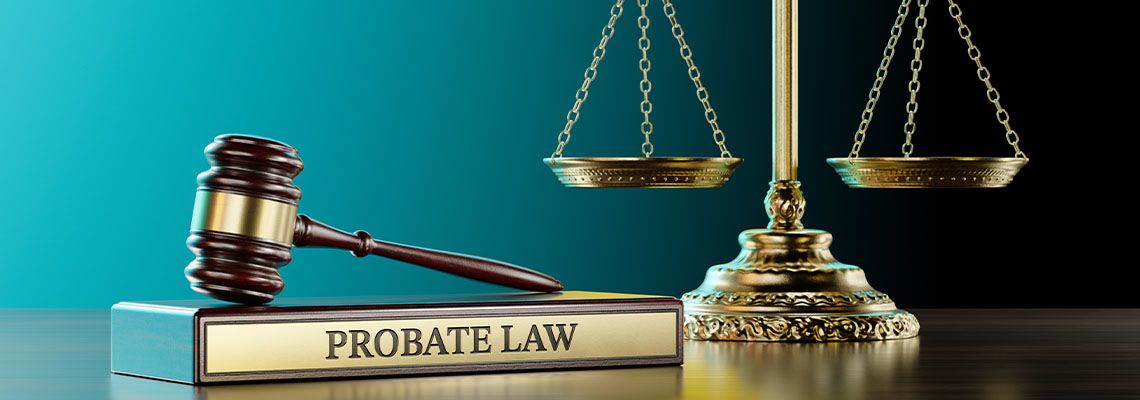
Probate FAQs
Probate can be intimidating, especially if you've never encountered it. Whether you're dealing with the estate of a loved one or planning your own, understanding how probate works is very important.
At The Probate Law Center, we simplify the legal jargon and provide clear answers to your most pressing questions. Let's dive into some common probate FAQs and how they impact Missouri residents.
What Is Probate?
Probate is the legal process of administering a deceased person's estate. It involves validating the will, paying off debts, and distributing the remaining assets to beneficiaries. Probate ensures that everything is handled according to the law and the deceased's wishes, reducing the likelihood of disputes among heirs.
Probate typically begins with the appointment of an executor named in the will, or a court-appointed administrator. The executor or administrator lists the deceased's assets, pays any outstanding taxes and debts, and distributes the remaining assets to the rightful heirs.
How Long Does Probate Take?
The duration of the probate process can vary widely. Generally, it takes between six months to a year. Factors like the complexity of the estate, the existence of a will, and potential disputes can extend this timeframe.
Probate can take longer if there are contested wills or complicated asset portfolios. Delays can also arise if there are difficulties in locating beneficiaries or if the estate involves properties in multiple jurisdictions. On the other hand, streamlined estates with clear documentation and no disputes may complete the probate process more quickly.
What Assets Go Through Probate?
Not all assets need to go through probate. Understanding which ones do can help you plan better.
Probate vs. Non-Probate Assets
Probate assets typically include property solely owned by the deceased, such as bank accounts, real estate, and personal belongings. Non-probate assets are those that pass directly to beneficiaries, like life insurance policies, retirement accounts, and jointly-owned property.
Jointly-owned property, for instance, automatically transfers to the surviving owner without going through probate. This is known as the "right of survivorship." Similarly, assets held in a trust bypass probate, as the trust specifies how these assets should be managed and distributed.
Can You Avoid Probate?
Yes, there are ways to avoid probate, such as setting up a living trust or designating beneficiaries on your financial accounts. These methods can expedite the transfer of assets and reduce legal fees.
Another way to avoid probate is by using payable-on-death (POD) designations for bank accounts, which allow the assets to transfer directly to a named individual upon your death.
Married couples can bypass probate by using a legal strategy known as "tenants by the entirety" to ensure property automatically passes to the surviving spouse.
How Does the Probate Process Work?
Understanding the steps involved can make the probate process less daunting.
File a petition: The first step is filing a petition with the local probate court. This initiates the process and allows the court to appoint an executor or administrator, if necessary.
Notify heirs and creditors: Once the petition is filed, the executor must notify all heirs and creditors. Everyone with a potential claim on the estate must be informed of the proceedings.
Inventory the estate: The executor will inventory all the deceased's assets and debts and submit this inventory to the court for review.
Pay debts and taxes: Before distributing assets, the estate must settle all debts and taxes. The executor ensures that the estate's obligations are met.
Distribute assets: After debts and taxes are paid, the remaining assets are distributed to the beneficiaries according to the will or state law.
Close the estate: Once all assets have been distributed, the executor files a final accounting with the probate court. This document specifies all distributions and payments made from the estate. After the court reviews and approves the accounting, the estate is officially closed, and the executor's duties are completed.
Obtain discharge of executor: The step formally discharges the executor from their duties. This is legal acknowledgment from the court that the executor has fulfilled their responsibilities. It protects the executor from being held liable later for their conduct during the probate process.
What if There Is No Will?
If the deceased did not leave a will, the estate is considered "intestate." In such cases, the estate is distributed according to state law. Typically, this means the assets go to the closest relatives, such as a spouse, children, or parents.
Without a will, the court will appoint an administrator to manage the estate. This person has similar duties to an executor but is chosen according to state law.
When an estate is intestate, additional documentation may be required to confirm the proper heirs. This could include affidavits of heirship and other legal paperwork to ensure the assets are distributed correctly.
Intestate estates often face longer probate processes due to the need to identify and locate all potential heirs. This process involves extensive investigations and additional court hearings, delaying the final distribution of assets.
What Are the Common Challenges in Probate?
Probate can present several challenges, from disputes among heirs to complex tax issues.
Family disputes and the absence of clear communication and legal guidance can complicate the probate process.
Estates with complex assets, like businesses or extensive real estate holdings, require specialized attention to ensure proper valuation and distribution.
Probate often involves dealing with various taxes. An experienced attorney can help you understand and minimize tax liabilities.
Missing or incomplete documentation can delay the probate process. Executors and administrators may need to spend additional time and resources to gather all necessary paperwork, such as asset titles, debt records, and beneficiary information.
Creditors have the right to make claims against the estate during probate. Unexpected or disputed claims can complicate the process, potentially reducing the assets available to beneficiaries and prolonging the administration period.
What Missouri Probate Laws Should I Be Aware Of?
Missouri has several laws governing probate:
Small Estate Procedures
Missouri offers simplified procedures for handling smaller estates, known as "small estate" or "simplified probate." If the total value of the estate does not exceed a certain threshold (currently $40,000), heirs can use an affidavit to bypass the full probate process. This allows for a quicker and less costly transfer of assets, making it an attractive option for qualifying estates.
Intestate Succession
When someone dies without a will in Missouri, their estate is distributed according to the state's intestate succession laws. These laws prioritize close family members, such as spouses, children, and parents, in the distribution of assets. Understanding intestate succession can help ensure your assets are distributed according to your wishes and avoid potential disputes among surviving relatives.
Creditor Claims
Creditors are given a specific time frame to present any claims against the estate during the probate process in Missouri. Typically, creditors must file their claims within six months of the first publication of notice to creditors. If a claim is not made within this period, it may be barred forever. This provision helps protect the estate from lingering debts and enables a timely distribution of assets to heirs.
What Kansas Probate Laws Should I Be Aware Of?
Kansas has its own set of laws that govern the probate process.
Simplified Probate
Like Missouri, Kansas offers a simplified probate process for smaller estates, typically those valued under $40,000. This can expedite the process and reduce legal fees. In simplified probate, the court may not require the appointment of an executor or lengthy legal proceedings. Instead, eligible heirs can file a petition and, if approved, directly distribute the assets without the need for a formal probate process.
Homestead Exemption
Kansas law includes a homestead exemption, which protects a portion of the deceased's home from being used to pay off debts.
The homestead exemption allows the surviving spouse and minor children to continue living in the home without the risk of losing it to creditors. It typically covers the principal residence up to a certain value, ensuring that the family retains their primary living accommodation during the probate process.
Spousal Rights
In Kansas, the surviving spouse has certain rights, regardless of what the will states. They have the right to claim an elective share, which is a portion of the estate that can be taken despite what is stated in the will. This allows them to receive adequate support, particularly if the will attempts to disinherit them or provides minimal inheritance. The surviving spouse is also entitled to financial support for maintenance during the probate process, up until the estate is settled.
Speak With a Probate Attorney in Kansas City, Missouri
Our experienced trial attorney is known for prioritizing clients and has successfully handled multi-million dollar trust disputes. We support our clients through probate planning and administration, providing straightforward advice and aggressive courtroom representation when necessary. If you have questions or concerns about probate in Kansas City, Missouri, Overland Park, Lee's Summit, Independence, Kansas, and Kansas City, Kansas, call The Probate Law Center today.

